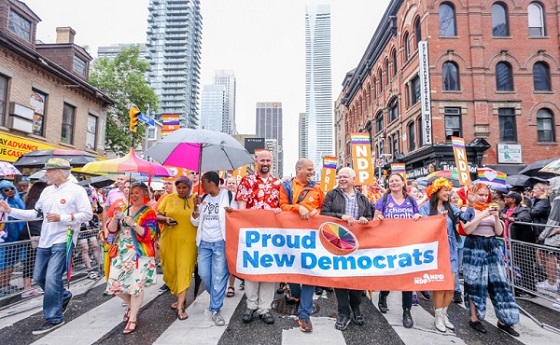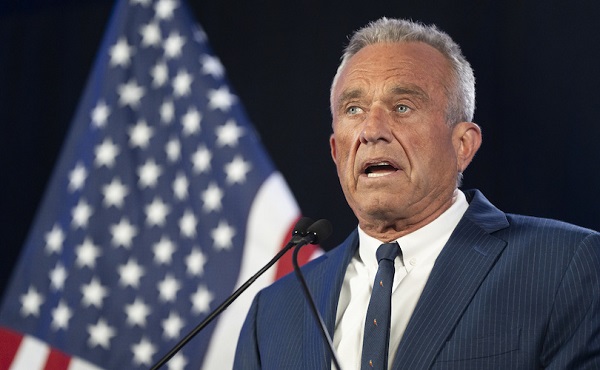National
Taxpayers Federation joins constitutional court fight regarding equalization expansion

From the Canadian Taxpayers Federation
Author: Carson Binda
“Provincial governments want the courts to force Ottawa to give them even more money through the equalization program”
The Canadian Taxpayers Federation is joining the fight against Newfoundland and Labradors’ legal bid to increase federal equalization payments.
“Provincial governments want the courts to force Ottawa to give them even more money through the equalization program and taxpayers simply can’t afford to pay those bills,” said Carson Binda, B.C. Director for the CTF. “Taxpayers in so-called have provinces lose billions through the equalization program, but the payments don’t provide any long-term solutions in recipient provinces.
“The Canadian Taxpayers Federation is getting into this court fight to stop provinces from wasting even more taxpayers’ money on the equalization program.”
The Newfoundland and Labrador government is suing the federal government for more equalization money. Premier Andrew Furey is arguing a province should receive more tax dollars when it can’t afford to pay for new programs that other provinces implement.
“Taxpayers in the rest of Canada shouldn’t be on the hook for whatever new spending provincial politicians want to roll out,” Binda said. “Equalization already costs $25 billion a year – how much would the bill go up if Furey gets his way?”
The CTF filed an application to intervene in the Newfoundland and Labrador Supreme Court on Oct. 3, 2024. The CTF will argue that the Constitution does not give provinces standing to sue Ottawa for bigger equalization payments.
“Canada’s Constitution was never designed to grant provincial governments the authority to forcibly extract more tax dollars from taxpayers in other provinces,” said Devin Drover, CTF General Counsel and Atlantic Director. “We look forward to representing taxpayers in the court in this groundbreaking case.”
National
Canada’s NDP bans leadership hopefuls from relying on too many ‘cis’ male supporters

From LifeSiteNews
The NDP’s leadership race imposes strict rules limiting signatures from so-called ‘cis’ men to 50% while mandating diversity quotas.
The New Democratic Party (NDP) had restricted how much support leadership candidates can receive from “cis” male Canadians.
According to the NDP leadership contest rulebook, leader candidates cannot receive more than 50 percent of the total required signatures from “cis” men, which is the LGBT term for a man who recognizes his being a man.
“At least fifty percent (50%) of the total required signatures must be from members who do not identify as a cis man,” the handbook states.
Additionally, the NDP mandates that a “minimum of one hundred (100) signatures must be from members of equity-seeking groups, including but not limited to racialized members, Indigenous members, members of the LGBTQIA2S+ community, and persons living with disabilities.”
Likewise, the signatures must be split between the provinces, and at least 10 percent must come from young NDP supporters.
The NDP officially launched its leadership race on September 2, following the resignation of former leader Jagmeet Singh after the party’s significant defeat in the April 2025 federal election.
During the election, the party lost its official status after only winning seven ridings. The NDP party has held its official status since 1961, losing this position for a short time between 1993 and 1997.Without official party status, the party lost privileges in Parliament, including the ability to ask daily questions in question period. NDP MPs will also not be guaranteed seats on standing committees and will be denied financial resources provided to recognized parties.
The race aims to select Singh’s permanent successor, with the new leader to be announced at the NDP’s national convention in Winnipeg on March 29, 2026
While the NDP based its party platform on supporting workers’ rights, in recent years it appears to have become little more than another radical woke party. Under Prime Minister Justin Trudeau, the Liberal and NDP parties formed a coalition which kept the Liberals in power for years.
Interim NDP leader Don Davies admitted recently that his party’s obsession with woke identity politics has been an electoral millstone around the party’s figurative neck. In a recent podcast interview with TVO host Steve Paikin, Davies mused that the party’s priorities have drifted in recent years.
“I think what the NDP has to do is a really good navel-gazing,” he told Paikin. “Are we talking about the right issues that are affecting kitchen tables in Oshawa or Trois-Rivières or Kamloops? Are we really understanding what working people are going through? I’m looking forward to the discussion in our party to see if we can reorient ourselves so we can tell workers, ‘We get you; we’ve got policies that will make your lives better.’”
As the National Post noted, Davies “said he also recognizes that, at the same time, issues facing white, straight male workers are ‘not the same’ as issues facing a worker who is a lesbian and a woman of colour and the party should find a balance between reflecting those different interests.” While the NDP has historically claimed to be the party of the working man, popularity among that demographic has slumped in recent years.
Economy
Fracking a win-win for workers and the environment in New Brunswick

From the Fraser Institute
By Alex Whalen
Wayne Long, MP for Saint John-Kennebecasis, waded into the long-standing debate on natural gas development in New Brunswick recently, bluntly telling Brunswick News “we need to frack.” Fracking refers to hydraulic fracturing, a process used to recover underground natural gas deposits. Long is right, and it’s important that New Brunswickers understand the economic opportunity inherent in natural gas, while separating fact from fiction when it comes to risks.
Estimates of New Brunswick’s Frederick Brook shale formation, a large underground deposit stretching from roughly Hampton to Sackville, suggest the province sits on approximately 80 trillion cubic feet of recoverable natural gas. At current market prices, the total value of this resource, if fully recovered, ranges from $186 billion to $221 billion. To be sure, such estimates are inherently uncertain and would materialize over a long period of time. However, even the province’s own estimates project $21 billion in investment with a “moderate” level of gas development.
Economic opportunities of this scale are rare and badly needed in New Brunswick. According to a recent comparison of employment earnings, New Brunswickers had the second-lowest median earnings ($32,175) among residents of all 10 Canadian provinces and 50 U.S. states. According to data published by Statistics Canada, wages in oil and gas are the highest among 22 categories of industry in Canada, topping $125,000 per year.
While a modest level of gas development has occurred in New Brunswick around the Sussex area, this resource is largely untapped. One of the main reasons is the moratorium on fracking implemented by the Gallant government in 2014. This ban is not supported by the facts.
In a wide-ranging review of scientific literature published by the Fraser Institute last year, my colleague Kenneth Green found that fracking does indeed carry risks, but these risks are manageable. For example, air pollution and water contamination are important factors that must be closely monitored when fracking is in place. Yet jurisdictions across North America safely recover natural gas while managing these risks. In the process, they grow their economies and boost the incomes of workers.
Moreover, development of natural gas carries environmental benefits, since the emissions produced by the consumption of natural gas are much lower than dirtier fuels such as coal. Another recent study found that if Canada were to double its natural gas production and export the additional supply to Asia as liquified natural gas (LNG) to displace emission-intensive coal in power generation, global emissions could be reduced by up to 630 million tonnes annually . For context, this reduction would be the equivalent of 89 per cent of Canada’s total greenhouse gas emissions.
As New Brunswick’s natural gas opportunity comes back into focus, the facts are clear: the province has an enormous economic opportunity to join the growing number of jurisdictions developing their natural gas resources. Fracking represents a win-win for both workers and the environment in New Brunswick.







